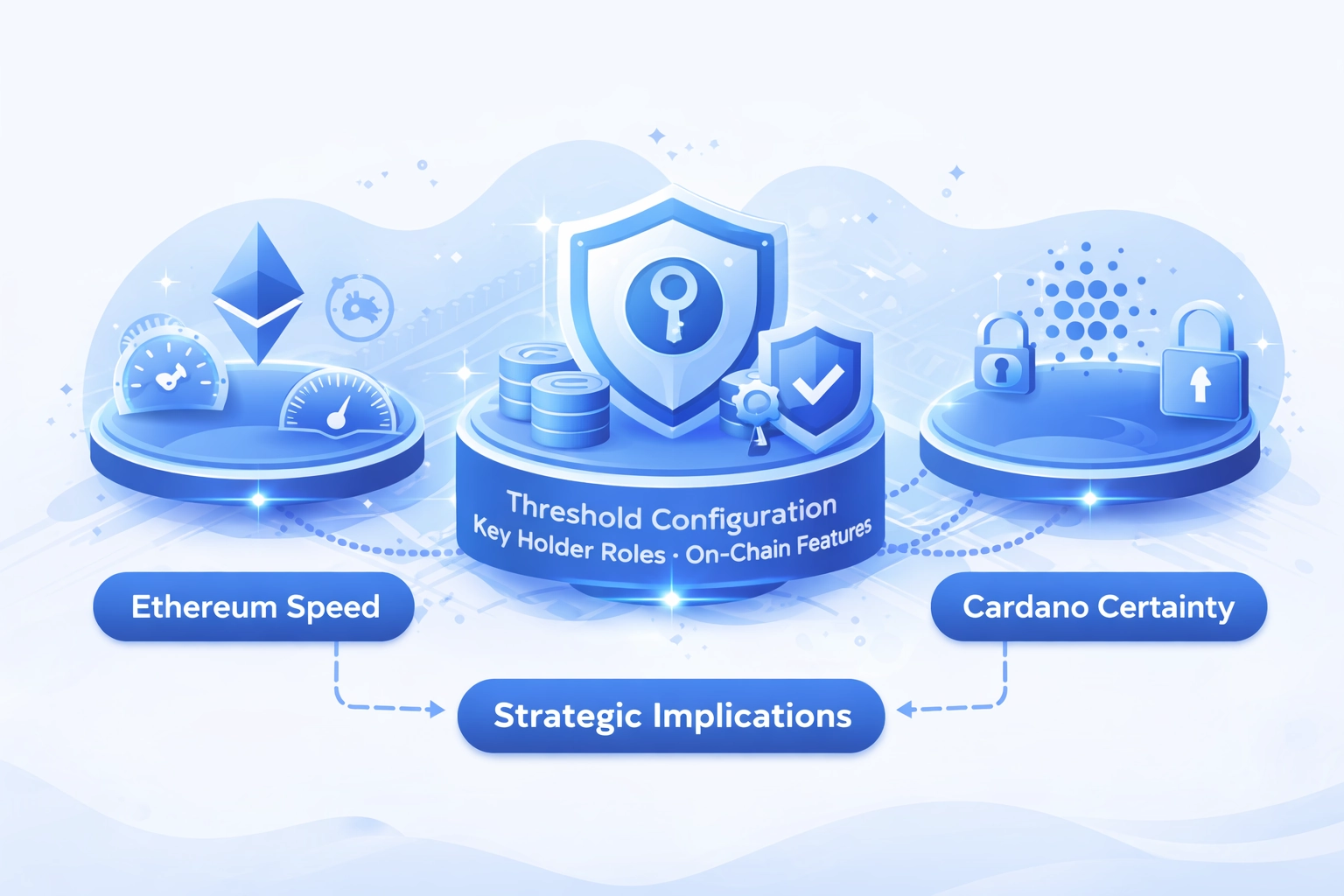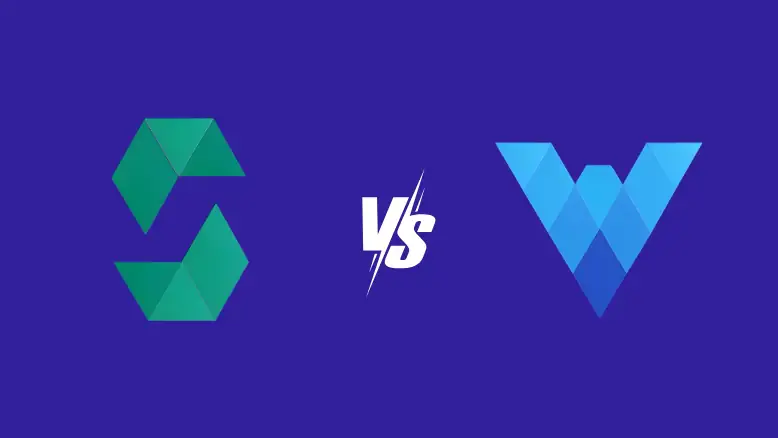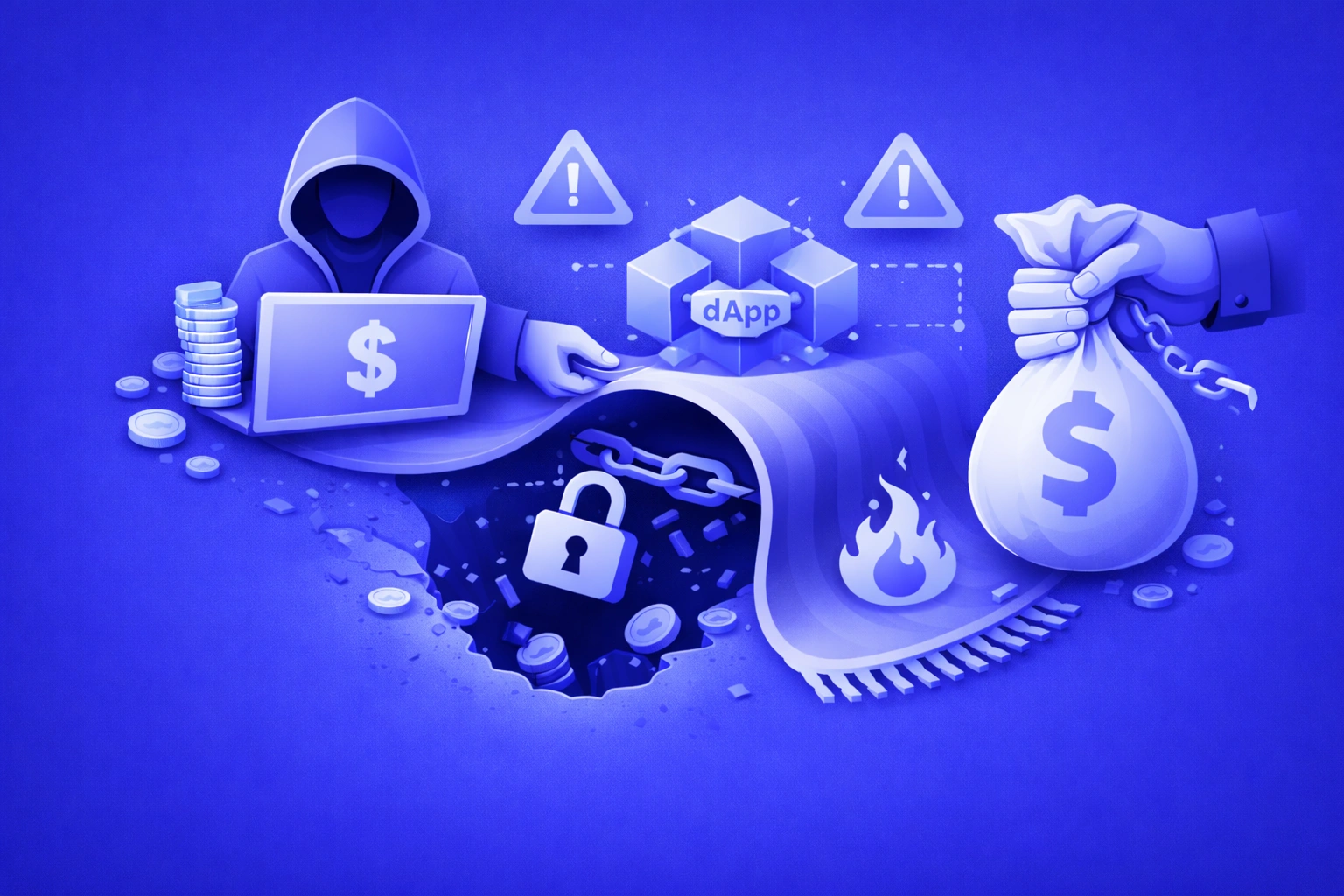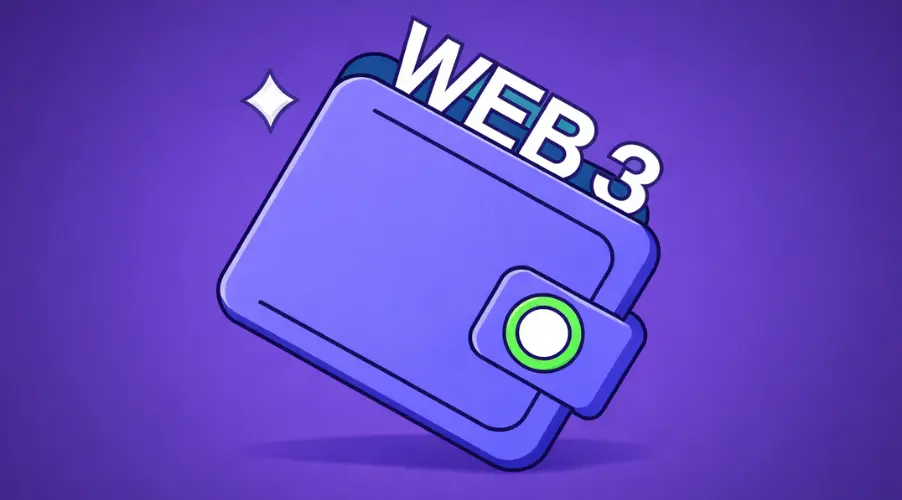Key Takeaways
- Ethereum vs Cardano Blockchain comparison reveals fundamental differences in philosophy, with Ethereum favoring speed and Cardano prioritizing mathematical verification.
- Ethereum dominates DeFi and NFT markets with over 60% market share, making it ideal for projects requiring ecosystem liquidity and integrations.
- Cardano’s peer-reviewed research approach delivers formally verified protocols that appeal to enterprises in regulated industries across USA, UK, and UAE.
- Transaction fees on Cardano remain predictable at $0.10 to $0.30 while Ethereum vs Cardano Blockchain mainnet costs fluctuate dramatically based on network congestion.
- Ethereum’s EVM compatibility enables seamless deployment across multiple Layer 2 networks, dramatically expanding scalability options for builders.
- Cardano’s eUTXO model enables deterministic transaction outcomes, allowing users to know exact costs before submitting transactions to the network.
- Governance models differ significantly with Ethereum vs Cardano Blockchain relying on off-chain coordination while Cardano implements on-chain treasury voting mechanisms.
- Both blockchains use Proof of Stake consensus but implement it differently, affecting validator requirements, rewards, and network security models.
- Enterprise adoption patterns show Ethereum vs Cardano Blockchain leading in financial services while Cardano gains traction in government and identity verification projects.
- Long-term sustainability depends on continued community engagement, with both platforms investing heavily in ecosystem grants and builder support.
Ethereum vs Cardano Blockchain Two Blockchains Built for Different Futures
The Ethereum vs Cardano Blockchain debate represents one of the most significant architectural decisions facing builders, enterprises, and investors in the decentralized ecosystem. Blockchain Technology has evolved dramatically since Bitcoin’s inception, and these two platforms embody fundamentally different visions for how distributed systems should operate. Understanding these differences is essential for making informed decisions about where to build, invest, or deploy applications.
Our agency has spent over eight years helping clients across the USA, UK, UAE, and Canada navigate blockchain platform selection. We have witnessed projects succeed brilliantly on one platform while struggling on another, not because of technical failures, but due to misalignment between platform capabilities and project requirements. The Ethereum vs Cardano Blockchain choice is not about which is objectively better but which aligns with your specific goals.
This comprehensive guide examines both platforms across critical dimensions including architecture, scalability, security, governance, and real-world applications. Whether you are building DeFi protocols, enterprise solutions, or exploring blockchain for supply chain management, understanding the Ethereum vs Cardano Blockchain landscape will help you make decisions that support long-term success.
Ethereum vs Cardano Blockchain Research-First Approach and What It Means for Reliability
Cardano emerged from academic research conducted by IOHK, founded by Ethereum co-founder Charles Hoskinson. Unlike Ethereum’s move-fast-and-iterate philosophy, Cardano requires peer-reviewed research before implementing protocol changes. This approach prioritizes correctness over speed, producing mathematically verified systems that appeal to risk-averse enterprises and regulated industries.
The Ethereum vs Cardano Blockchain debate often centers on this philosophical difference. Cardano has published over 150 peer-reviewed papers covering consensus mechanisms, smart contract design, and governance models. This academic foundation provides confidence that protocol behaviors are well-understood and formally proven, reducing risks of unexpected failures or vulnerabilities.
For enterprises in highly regulated markets like financial services in the UK, healthcare in Canada, or government services in the UAE, Cardano’s research-backed assurances often outweigh ecosystem size considerations. The ability to demonstrate formal verification to regulators provides compliance advantages that accelerate institutional adoption.
 Execution Speed vs Mathematical Certainty in Blockchain Design
Execution Speed vs Mathematical Certainty in Blockchain Design
The Ethereum vs Cardano Blockchain comparison highlights a fundamental tradeoff between rapid iteration and formal verification.
Ethereum Speed
- Rapid protocol upgrades and hard forks
- Quick deployment of new features
- Community-driven innovation cycles
- Iterative improvement philosophy
Cardano Certainty
- Peer-reviewed research requirement
- Formal verification of protocols
- Mathematical proofs of correctness
- Predictable upgrade schedules
Strategic Implications
- Startup agility vs enterprise stability
- Innovation speed vs risk mitigation
- Community experimentation vs formal process
- Market timing vs long-term reliability
Why Ethereum vs Cardano Blockchain Prioritizes Flexibility While Cardano Prioritizes Precision
Ethereum’s design philosophy embraces flexibility, allowing developers to implement virtually any logic within smart contracts. The Ethereum Virtual Machine provides a Turing-complete execution environment where creativity is limited only by gas costs. This flexibility has enabled explosive innovation across DeFi, NFTs, gaming, and countless other verticals that nobody anticipated when the platform launched.
Cardano takes the opposite approach, designing constrained systems where precision matters more than flexibility. The extended UTXO model forces developers to think carefully about state management while providing deterministic transaction outcomes. This precision eliminates entire categories of bugs and vulnerabilities that plague account-based systems like Ethereum.
In the Ethereum vs Cardano Blockchain evaluation, this distinction profoundly impacts project suitability. Experimental applications exploring novel mechanisms benefit from Ethereum’s flexibility. Mission-critical systems requiring predictable behavior find Cardano’s precision invaluable for regulatory compliance and risk management.
The Role of Academic Research in Cardano’s Blockchain Evolution
Cardano’s academic foundation distinguishes it within the Ethereum vs Cardano Blockchain landscape. The Ouroboros consensus protocol underwent rigorous peer review at crypto conferences before implementation, establishing security proofs that traditional software engineering cannot provide. This academic rigor creates confidence for institutions requiring demonstrable security guarantees.[1]
Research partnerships with universities worldwide including Edinburgh, Tokyo, and Wyoming contribute ongoing improvements to the protocol. These collaborations ensure Cardano benefits from cutting-edge cryptographic research while maintaining academic credibility that appeals to government and enterprise adopters in markets like Canada and the UK.
The tradeoff is slower feature delivery compared to Ethereum. While Ethereum vs Cardano Blockchain ships upgrades rapidly, Cardano’s research pipeline can take years from concept to deployment. For time-sensitive projects racing to market, this deliberate pace represents a significant competitive disadvantage requiring careful consideration.
Ethereum’s Upgrade Path and Its Impact on Network Stability
Ethereum vs Cardano Blockchain has undergone numerous upgrades since launch, each introducing new capabilities while occasionally creating temporary instability. Understanding this upgrade history illuminates the Ethereum vs Cardano Blockchain differences in platform maturity and evolution strategies.
| Upgrade | Year | Key Changes | Impact |
|---|---|---|---|
| Homestead | 2016 | Protocol stability improvements | Foundation solidified |
| Constantinople | 2019 | Gas optimizations, new opcodes | Efficiency gains |
| The Merge | 2022 | Proof of Stake transition | 99% energy reduction |
| Shanghai | 2023 | Staking withdrawals enabled | Liquidity unlocked |
| Dencun | 2024 | Proto-danksharding, blobs | L2 cost reduction |
Ethereum vs Cardano Blockchain Layered Architecture Explained Simply
Cardano implements a unique two-layer architecture separating settlement from computation. The Cardano Settlement Layer (CSL) handles ADA transactions and value transfer, while the Cardano Computation Layer (CCL) executes smart contracts. This separation provides flexibility for upgrades without disrupting core monetary functions, a significant advantage in the Ethereum vs Cardano Blockchain comparison.
The layered approach enables Cardano to implement different consensus rules for each layer if needed, optimizing for specific use cases. Settlement can prioritize security and finality while computation can optimize for throughput and complex logic execution, making stablecoin cardano implementations more efficient and reliable. This architectural flexibility supports diverse application requirements.
Ethereum’s monolithic architecture integrates all functionality into a single layer, simplifying the mental model but limiting optimization opportunities. The tradeoff between architectural elegance and practical flexibility represents another dimension of the Ethereum vs Cardano Blockchain decision matrix.
Token Economics and Incentive Models Compared
Token economics fundamentally shape network security, validator behavior, and long-term sustainability. The Ethereum vs Cardano Blockchain comparison reveals different approaches to monetary policy and staking incentives that impact investment decisions.
| Metric | Ethereum (ETH) | Cardano (ADA) |
|---|---|---|
| Total Supply | No fixed cap (deflationary) | 45 billion ADA maximum |
| Staking Yield | 3-5% APY | 4-6% APY |
| Minimum Stake | 32 ETH ($100K+) | No minimum |
| Slashing Risk | Yes, validators penalized | No slashing mechanism |
| Unlock Period | Variable withdrawal queue | Instant unlocking |
Governance Models That Define Ethereum vs Cardano Blockchain
Governance determines how networks evolve, allocate resources, and resolve disputes. The Ethereum vs Cardano Blockchain comparison reveals fundamentally different approaches to decentralized decision-making that impact long-term protocol direction and community engagement.
Ethereum governance operates primarily off-chain through Ethereum Improvement Proposals (EIPs), core developer calls, and rough consensus among stakeholders. This informal process has successfully delivered major upgrades but lacks transparent voting mechanisms. Decisions often reflect core developer judgment rather than broad token holder preferences.
Cardano implements on-chain governance through Project Catalyst, enabling ADA holders to vote on treasury allocations and protocol improvements. The Voltaire era introduces comprehensive governance features including constitutional frameworks and representative democracy mechanisms. This formal governance appeals to institutions requiring transparent decision-making processes.
Real-World Applications Where Ethereum vs Cardano Blockchain Excels
Ethereum dominates decentralized finance with protocols managing billions in assets across lending, trading, and derivatives. Major DeFi protocols like Aave, Uniswap, and MakerDAO have processed trillions in transaction volume, demonstrating Ethereum’s capability for complex financial applications. Institutions in New York, London, and Dubai increasingly integrate with Ethereum DeFi infrastructure.
The NFT ecosystem thrives on Ethereum, with marketplaces like OpenSea facilitating billions in digital art and collectible sales. Creator economies spanning music, gaming, and entertainment have chosen Ethereum for its liquidity and collector base. This cultural significance extends beyond technology into mainstream adoption.
Enterprise tokenization projects increasingly deploy on Ethereum and its Layer 2 networks. Real-world asset tokenization spanning real estate, securities, and commodities leverages Ethereum’s mature infrastructure and institutional familiarity. The Ethereum vs Cardano Blockchain choice for tokenization often favors Ethereum’s established ecosystem.
Use Cases Where Cardano Has a Strategic Edge
Cardano excels in identity and credential verification systems where formal verification provides essential guarantees. The Atala PRISM identity solution enables secure, portable digital identities for individuals and organizations. Government projects in developing nations have chosen Cardano for national identity infrastructure due to its research-backed security model.
Supply chain traceability applications benefit from Cardano’s deterministic execution and lower fees. Agricultural supply chains tracking products from farm to consumer achieve cost-effective verification at scale. The predictable fee structure enables high-volume tracing that would be prohibitively expensive on Ethereum vs Cardano Blockchain mainnet.
Educational credential verification represents another Cardano strength, with universities exploring blockchain-based degree verification. The formal verification approach aligns with academic institutional values, creating natural partnerships. Projects in the UK and Canada have piloted Cardano-based credential systems for cross-border recognition.
Ecosystem Growth Patterns: Rapid Expansion vs Controlled Scaling
Ethereum’s ecosystem grew explosively, attracting developers with permissionless deployment and immediate access to liquidity. This rapid expansion created network effects that reinforce platform dominance but also produced quality variance across applications. The Ethereum vs Cardano Blockchain growth comparison shows dramatically different trajectories.
Cardano’s controlled scaling emphasizes quality over quantity, with ecosystem growth following infrastructure buildout. The deliberate pace frustrates developers seeking immediate deployment but produces more stable applications when they launch. Catalyst funding provides sustainable support for projects meeting community standards.
For builders in markets like the UAE and Canada where regulatory compliance matters, Cardano’s controlled approach may reduce legal risks associated with ecosystem participation. The tradeoff between growth speed and quality assurance represents a strategic decision with long-term implications.
Risk Tolerance and Blockchain Choice for Builders
Selecting between Ethereum vs Cardano Blockchain requires honest assessment of your risk tolerance and project requirements.
High Risk Tolerance
Choose Ethereum for maximum ecosystem access, liquidity, and innovation potential despite higher volatility and gas costs.
Moderate Risk Tolerance
Consider Ethereum Layer 2 solutions for reduced costs while maintaining ecosystem access and acceptable security tradeoffs.
Low Risk Tolerance
Select Cardano for formal verification, predictable fees, and research-backed assurances required by regulated industries.
Enterprise Requirements
Evaluate both platforms against specific compliance, audit, and governance requirements before making final decisions.
Startup Agility
Prioritize time-to-market and ecosystem integration when building consumer applications requiring rapid iteration cycles.
Long-Term Vision
Consider multi-chain strategies deploying on both platforms to maximize reach and hedge against platform-specific risks.
Long-Term Sustainability of Ethereum vs Cardano Blockchain Networks
Both platforms have implemented mechanisms ensuring continued operation and evolution across decades.
Ethereum Foundation Funding
Substantial treasury reserves support ongoing research, ecosystem grants, and core protocol maintenance.
Cardano Treasury System
On-chain treasury funded by transaction fees enables self-sustaining protocol funding through community governance.
Ethereum Fee Burns
EIP-1559 burns base fees creating deflationary pressure that potentially increases value for long-term holders.
Cardano Catalyst Funding
Regular funding rounds allocate millions to ecosystem projects through democratic voting mechanisms.
Ethereum Layer 2 Revenue
Growing Layer 2 ecosystem generates sustainable fee revenue supporting continued mainnet security.
Cardano Partner Network
Strategic partnerships with governments and enterprises provide revenue diversification beyond protocol fees.
Ethereum Staking Economics
Validator rewards incentivize long-term network participation ensuring ongoing security and decentralization.
Cardano Staking Pools
Liquid staking without lockups encourages broad participation maintaining decentralized stake distribution.
Which Blockchain Aligns Best With Your Vision and Use Case
Making the Ethereum vs Cardano Blockchain decision requires aligning platform capabilities with your specific requirements.
Principle 1: Choose Ethereum for DeFi applications requiring deep liquidity pools and protocol composability.
Principle 2: Select Cardano for identity systems where formal verification provides regulatory compliance advantages.
Principle 3: Prioritize Ethereum when time-to-market determines competitive success in fast-moving sectors.
Principle 4: Consider Cardano for high-volume applications where predictable fees enable sustainable business models.
Principle 5: Evaluate Ethereum Layer 2s for cost-sensitive applications needing ecosystem connectivity benefits.
Principle 6: Choose based on team expertise, leveraging existing Solidity or Haskell skills appropriately.
Principle 7: Consider multi-chain deployment when targeting diverse user bases across different blockchain communities.
Principle 8: Reassess platform choice annually as both ecosystems evolve and competitive advantages shift.
Blockchain Selection Compliance Checklist
Regulatory Requirements
- Jurisdiction-specific compliance verified
- Audit trail capabilities assessed
- Data privacy requirements met
Technical Fit
- Throughput requirements analyzed
- Smart contract complexity evaluated
- Integration dependencies mapped
Economic Viability
- Transaction cost projections modeled
- Token economics understood
- Sustainability analysis completed
Team Readiness
- Team skills inventory completed
- Training requirements identified
- Support resources established
Build Your Blockchain Vision With Expert Guidance
Our team helps enterprises across USA, UK, UAE, and Canada navigate the Ethereum vs Cardano Blockchain decision with confidence.
Frequently Asked Questions
Ethereum and Cardano differ fundamentally in their design philosophy and technical approach. Ethereum prioritizes flexibility and rapid innovation, allowing developers to build and iterate quickly on decentralized applications. Cardano takes a research-first approach, ensuring every protocol upgrade undergoes peer-reviewed academic scrutiny before implementation. Ethereum uses an account-based model while Cardano employs an extended UTXO model for transactions. These architectural differences impact scalability, security, and how smart contracts execute on each network.
The better blockchain depends on your project requirements and risk tolerance. Ethereum offers a mature ecosystem with extensive tooling, libraries, and a massive developer community across USA, UK, UAE, and Canada. Cardano provides formal verification capabilities and deterministic fee structures that appeal to enterprises requiring mathematical certainty. Ethereum excels for projects needing rapid deployment and DeFi integrations, while Cardano suits applications where security guarantees and predictable costs are paramount priorities.
Cardano currently processes transactions faster than Ethereum’s base layer, achieving approximately 250 transactions per second compared to Ethereum’s 15-30 TPS on mainnet. However, Ethereum’s Layer 2 solutions like Arbitrum and Optimism dramatically increase throughput to thousands of TPS. Cardano’s Hydra scaling solution promises similar improvements. Transaction finality also differs, with Cardano providing faster deterministic finality while Ethereum requires more confirmations for probabilistic finality assurance.
Cardano consistently offers lower and more predictable transaction fees compared to Ethereum’s base layer. Cardano transactions typically cost between $0.10 and $0.30 regardless of network congestion, while Ethereum mainnet fees fluctuate significantly based on demand, sometimes exceeding $50 during peak periods. Ethereum Layer 2 solutions reduce fees substantially to compete with Cardano. For enterprises and high-volume applications, Cardano’s fee predictability simplifies budgeting and financial planning considerably.
Native interoperability between Ethereum and Cardano smart contracts requires cross-chain bridges and middleware solutions. Direct interaction is not possible since they use different virtual machines and programming languages. Ethereum uses Solidity on the EVM while Cardano uses Plutus based on Haskell. Bridge protocols enable asset transfers between networks, and emerging cross-chain messaging standards may eventually allow limited smart contract interactions across both blockchain ecosystems.
Reviewed & Edited By

Aman Vaths
Founder of Nadcab Labs
Aman Vaths is the Founder & CTO of Nadcab Labs, a global digital engineering company delivering enterprise-grade solutions across AI, Web3, Blockchain, Big Data, Cloud, Cybersecurity, and Modern Application Development. With deep technical leadership and product innovation experience, Aman has positioned Nadcab Labs as one of the most advanced engineering companies driving the next era of intelligent, secure, and scalable software systems. Under his leadership, Nadcab Labs has built 2,000+ global projects across sectors including fintech, banking, healthcare, real estate, logistics, gaming, manufacturing, and next-generation DePIN networks. Aman’s strength lies in architecting high-performance systems, end-to-end platform engineering, and designing enterprise solutions that operate at global scale.







